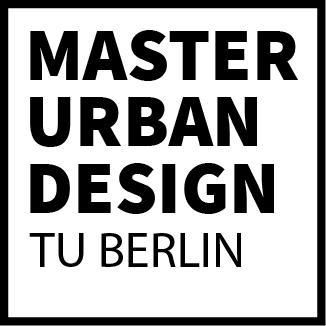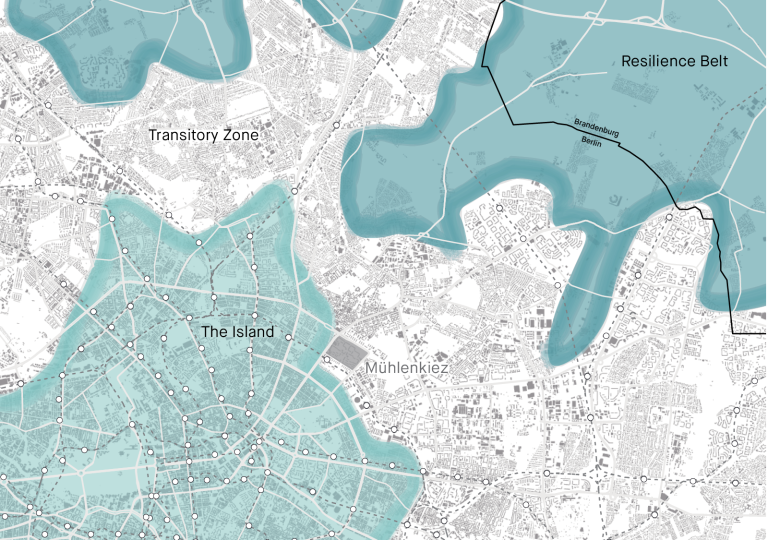For What it’s Worth 2: The Great Transformation
degrowth
The current economy and societal norm is built on the capitalist and consumerist notion to grow “faster, higher, and further”. This not only stimulates competition within the market, but also within communities and individuals. The Degrowth movement arose from concerns over the perceived consequences of the productivism and consumerism associated with industrial societies, including reduced availability of energy sources, declining environmental conditions, and the ever-expanding use of resources to satisfy lifestyles that consume more food and energy, and produce more waste. It has its foundation in solidarity, sustainability, and cooperation.
The future scenario focuses on a rural growth of Berlin and Brandenburg.

Due to lack of affordable housing in Berlin a Resilience Belt with Co-working/co-living spaces are created. Depending on their occupations, skills, and lifestyles, certain groups settled closer to the city in order to retain a closer connection to their workplace or the city’s infrastructure. While others moved further out into Brandenburg to live a more self-sustainable life in the outer regions of the Belt.
The Degrowth party is able to stably govern the center of the city, which becomes a regulated “island” under sustainability regulations like taxing of private motorised transport and household or industrial waste. In this inner area, public transportation and other public services, such as hospitals and
universities, are fully functioning.

Mühlenkiez transforms into one of these spaces in the transitory zone.

The Transitory zone is the area at the intersection of the city between the Ringbahn and the Resilience Belt. It is a heterotopian space which
is marked by rundown infrastructure and malfunctioning public
services as it escapes the control of the feeble state in the centre
and lacks organized community structures like in the Resilience
Belt. While trade and production happen in large parts of
the Zone through established networks and recurrent patterns,
much of the empty space are left to the temporary use of anything
from artistic interventions to illegal practices.

The Community is organised by an own Organization. A Community Land Trust is a nonprofit organization that develops and stewards affordable housing, agriculture, civic buildings, commercial spaces and other assets
on behalf of a community. CLTs balance the needs of individuals and society to occupy land and maintain security of tenure, while considering the community’s economic diversity and local access to essential services.

Because of the shrinking population of Berlin extensive building
stock is available on the cities´ edges, The lifted ground floors in the tall high-rises in Muehlenkiez are well suited for unloading and storing
cargo for the markets of the transitory zone. Above
the storage space, apartments are used for short and long term
accommodation in shared, hostel like facilities by traders and
visitors of the transitory zone. In higher floors water and heating
supply is difficult to uphold and therefore poorly functioning.
Most apartments are empty and used for alternative permanent
activities like ateliers, workshops, black market shops and bars
as well as temporary functions like exhibitions, performances
and parties.






